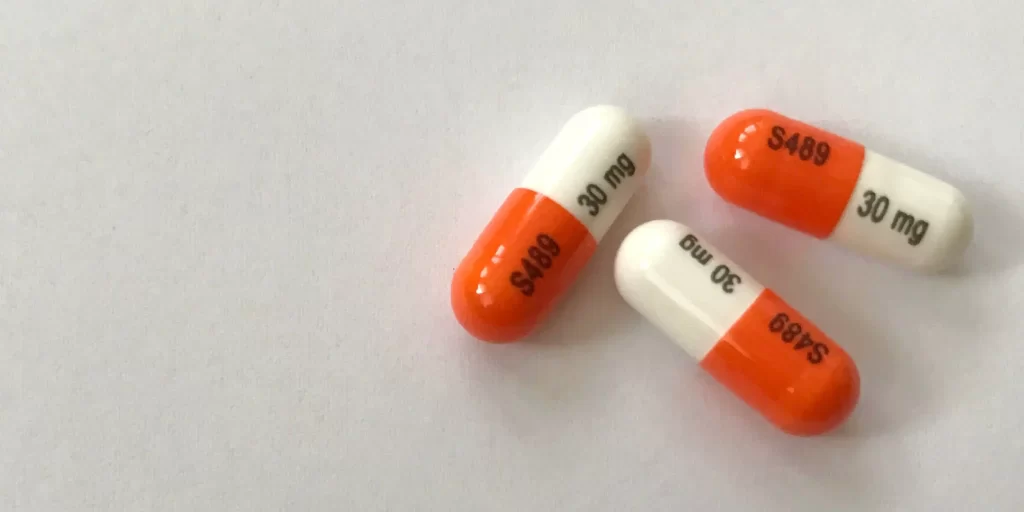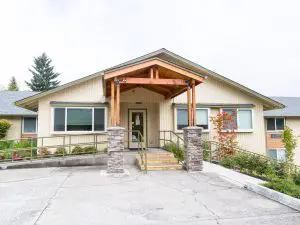Vyvanse Addiction Treatment & Rehab
Written by Thomas Christiansen
& Medically Reviewed by Dr. Annie Tye, PhD
Medically Reviewed
Up to Date
Last Updated - 6/17/2022
View our editorial policy
Vyvanse is FDA-approved to treat ADHD and binge eating disorder and is among the most popular prescription central nervous system (CNS) stimulants for children and adults. Vyvanse is similar to other popular stimulants, including Adderall, Concerta, and Ritalin. These drugs are classified as Schedule II controlled substances by the Drug Enforcement Administration (DEA), meaning that they have recognized the medical value, but they are also associated with a significant risk for dependence, abuse, and negative physical and psychological consequences.
Even when taken as directed, routine Vyvanse use quickly leads to the development of tolerance (meaning that continuously increased doses are required in order to achieve the desired effect) and dependence (the occurrence of physical and psychological withdrawal symptoms after reducing or completely stopping Vyvanse use). Eventually, addiction can develop. Vyvanse addiction is associated with an inability to manage symptoms of dependence. People struggling with Vyvanse addiction may engage in compulsive, drug-seeking behaviors to obtain more Vyvanse despite facing the negative health and social consequences of using the drug.
For people with diagnosed ADHD, Vyvanse offers legitimate therapeutic benefits when used as directed. However, Vyvanse use disorders can be challenging to face without professional help. Many people find that participation in a residential or outpatient rehab program provides the most reliable way to ensure long-term success in recovery.
Vyvanse Treatment Options
There is a widespread misperception that misuse or abuse of “study drugs,” like Vyvanse, can improve GPAs, work quality, work output, and social standing. Unfortunately, many people who misuse Vyvanse to improve their personal and professional lives find that they are unable to stop taking it when they want to.
Professional rehab is an effective way to overcome the challenges associated with Vyvanse dependence. Many people who try to stop using Vyvanse alone quit “cold turkey,” which often sets them up for failure. The most effective way to quit Vyvanse use is to follow a tapering schedule that is professionally designed to suit specific needs. When a person entrusts their care to rehab professionals, they can focus on recovery without worrying that their recovery is not progressing appropriately or being tempted to resume substance use when facing cravings.
Inpatient Rehab
Inpatient rehab offers clients the opportunity to live on-site during the early stages of recovery. In extreme cases, people with Vyvanse dependence may be candidates for medical detox, which provides 24/7 medical supervision and, if appropriate, medications that can mitigate the severity of physical and psychological withdrawal symptoms. Inpatient rehab provides full-time access to professionals who can address questions and concerns as they arise.
Inpatient treatment at The Recovery Village Ridgefield includes daily individual and group therapy sessions, professional medication management, access to physical fitness and spiritual wellness programs and recreational therapies like music and art.
Outpatient Rehab
For people with mild Vyvanse use disorders, beginning at an outpatient level of therapy may be appropriate. People with more serious dependence may transition into outpatient care from a residential program. A common theme throughout all outpatient programs is the client’s ability to maintain their normal daily activities and responsibilities while receiving treatment for Vyvanse addiction.
There are different levels of outpatient rehab programs that vary in their intensity. Some treatment programs require a certain amount of hours per week to be devoted to rehab therapy. Less intensive programs have fewer required hours, but the goal of all outpatient programs is to provide clients with the tools they need to reorient to their new, sober lifestyle successfully.
Dual Diagnosis
Many substance use disorders have underlying mental health disorders that have not been diagnosed. Vyvanse misuse often stems from a desire to manage symptoms of depression or anxiety. A rehab facility that is equipped to evaluate whether a dual diagnosis is appropriate will evaluate clients for substance use disorder and co-occurring disorder. Many people who have undiagnosed mental health disorders find that once appropriate treatment is undertaken, their desire to continue to use Vyvanse or other substances is more manageable.
Aftercare
Recovery from substance use disorders is often a lifelong pursuit, and many people find aftercare programs to be incredibly valuable when they have completed their formal rehab programs. Aftercare comes in many forms, ranging from 12-step programs to facility-specific programs that serve as an extension of outpatient. In addition, aftercare may come in the form of sober social events or healthy recreational pursuits.
How Much Does Vyvanse Rehab Cost?
Estimating the total costs associated with Vyvanse rehab requires an in-person evaluation, but broad estimates of expenses related to a 30-day rehab program can be provided:
- Residential Rehab: A basic residential program may cost less than $10,000, while the costs associated with luxury programs can easily exceed $25,000. Increasing cost is generally associated with amenities like comfortable, semi-private or private housing, gourmet meals, and access to specialized therapy programs.
- Intensive Outpatient Rehab: Intensive outpatient programs vary in cost, depending on whether clients are required to live on-site and the number of hours that clients spend in therapy every week. Costs for an IOP may run from $3,500 to $11,000.
- Outpatient Rehab: Costs associated with outpatient programs are highly variable. Some state-run outpatient programs may be free, while outpatient programs that provide access to both traditional and cutting-edge therapy may be over $10,000.
There may be other expenses that are not included in a particular rehab program, including admissions fees (which may be several thousand dollars), whether a medical detox is required (up to $800 per day) and additional medical care that patients may require. In some cases, aftercare can be very expensive — especially if clients reside in a sober-living community — while other programs are free.
Does Insurance Cover Treatment For Vyvanse Addiction?
Many insurance policies (including Medicaid and Medicare) will cover at least a part of rehab. The Recovery Village Ridgefield works with several insurance providers. Check our insurance page or call us to see if your insurance plan works with us.
Rehab without insurance is also possible in many cases:
- Government Assistance Programs: Many states, including Oregon and Washington, offer assistance for people seeking rehab.
- Sliding Fee Programs: To help as many people as possible, rehab facilities often offer sliding fee programs. In addition, grants and scholarships may be provided.
- Private Pay Programs: For people who can afford to pay out-of-pocket, private pay programs frequently offer high levels of privacy and luxury amenities.
Some people have also successfully funded their rehab using creative strategies like crowdfunding.
Finding a Vyvanse Treatment Center In Washington or Oregon
Although there are several rehab centers in Washington and Oregon, they provide vastly different levels of treatment and quality of care. As people evaluate which program is right for them, there are several considerations to keep in mind:
- Location: The closest rehab program may not be the most suitable one. Don’t be afraid to consider programs that are outside of your community.
- Cost: Unfortunately, cost is a factor. Look for programs that are in-network with insurance plans, if applicable. If someone doesn’t have insurance, they can ask if the rehab center offers grants, scholarships or sliding-fee scales.
- Treatment options: The best rehab programs are equipped to treat every stage of recovery, from detox and acute withdrawal to long-term rehab and aftercare. Look for comprehensive programs that are staffed by multidisciplinary teams with experience in treating Vyvanse and other prescription stimulant use disorders.
- Success rates: Facilities that provide success rates are helpful, but be cautious of programs touting 100% success rates. Some facilities will also provide endorsements from former clients.
- Treatment duration: The duration of a rehab program should be based on a patient’s progress, not a predetermined schedule.
- Staff-to-patient ratio: A low patient-to-staff ratio is important and ensures that patients will receive the attention and care they need.
- Accreditation: The Joint Commission or CARF International accreditation guarantees a certain standard of care.

The Recovery Village Ridgefield
888 Hillhurst Rd. Ridgefield, WA 98642
(855) 703-1445
Contact The Recovery Village Ridgefield to speak with a representative about how professional addiction treatment can address your substance use disorder along with any co-occurring mental health disorders. You deserve, a healthier future, call today.
Sources
Goodman, David W. “Lisdexamfetamine dimesylate (vyvanse), a prodrug stimulant for attention-deficit/hyperactivity disorder.” Pharmacy & Therapeutics, May 2010. Accessed September 14, 2019.
U.S. Food and Drug Administration. “Vyvanse.” Accessed September 19, 2019.
View Sources
Goodman, David W. “Lisdexamfetamine dimesylate (vyvanse), a prodrug stimulant for attention-deficit/hyperactivity disorder.” Pharmacy & Therapeutics, May 2010. Accessed September 14, 2019.
U.S. Food and Drug Administration. “Vyvanse.” Accessed September 19, 2019.
Authorship






